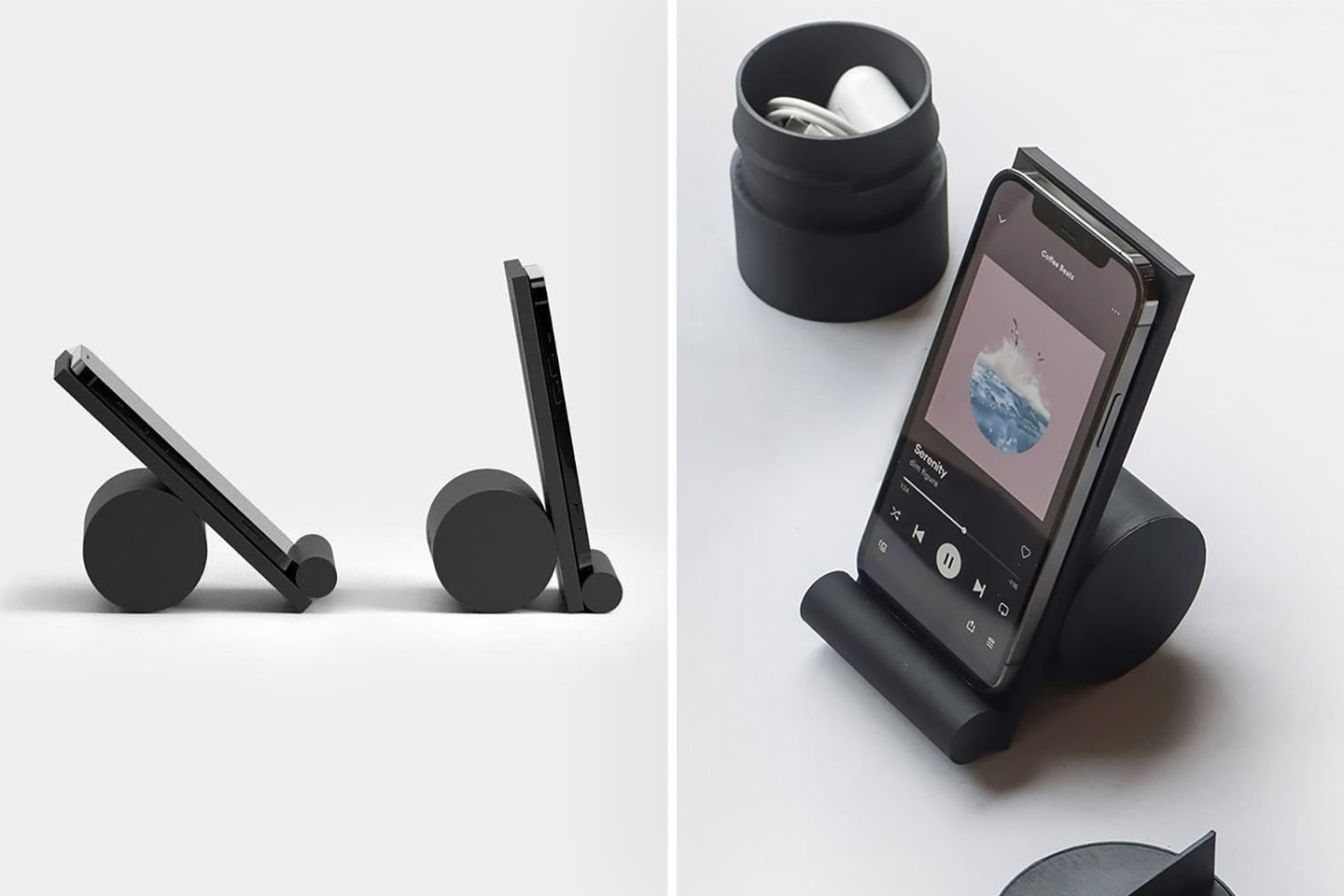
The Memphis 2.0 design movement was all about visualizing designs through a geometric lens. Nothing was normal, everything was simple geometry that intersected or interacted with each other. Products were fun, graphics were vibrant, and everything was eye-catching until minimalism came and took over. Hold The Phone, however, holds onto the sheer beauty of Memphis 2.0 with its blockish design language.
Created by the folks at Boem, Hold The Phone is part phone stand, part statement piece. With its simple yet bold design, Hold The Phone does exactly what it says it does, while also hiding a trick up its sleeve. The phone stand is made up of 3 elements – the stand itself, a slab-shaped piece of plastic, with a small cylindrical lip at the bottom to hoist the phone up, and a large cylindrical element at the back that props the entire structure upwards at an angle. This large rear cylinder slides upwards and downwards, adjusting the angle at which your phone rests, giving you the ability to tilt your phone at virtually any angle you need. Moreover, that large cylinder is actually hollow on the inside, allowing you to use it to store items like cables, thumb drives, SD cards, and any other tiny items you’d otherwise end up losing!
Designer: Boem
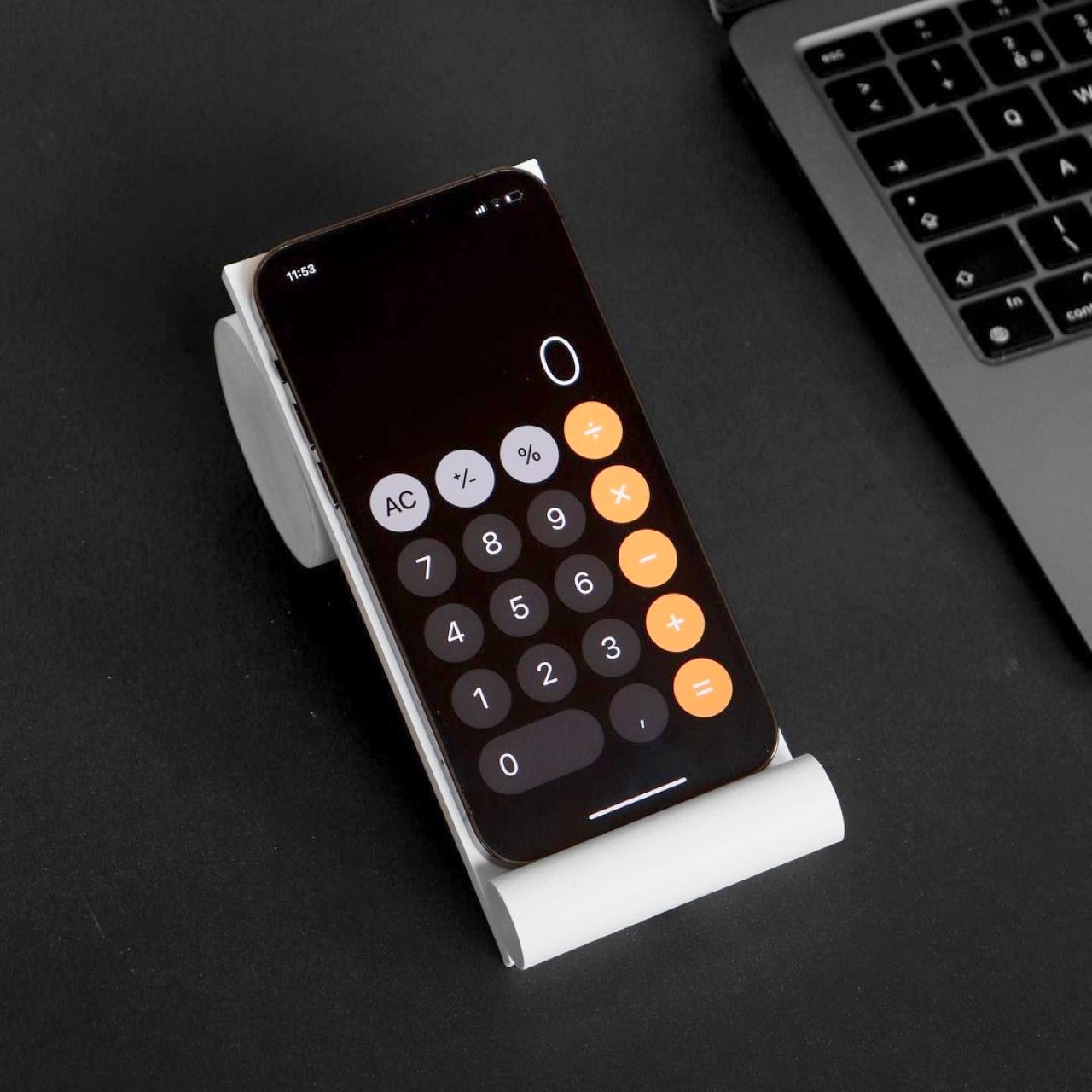
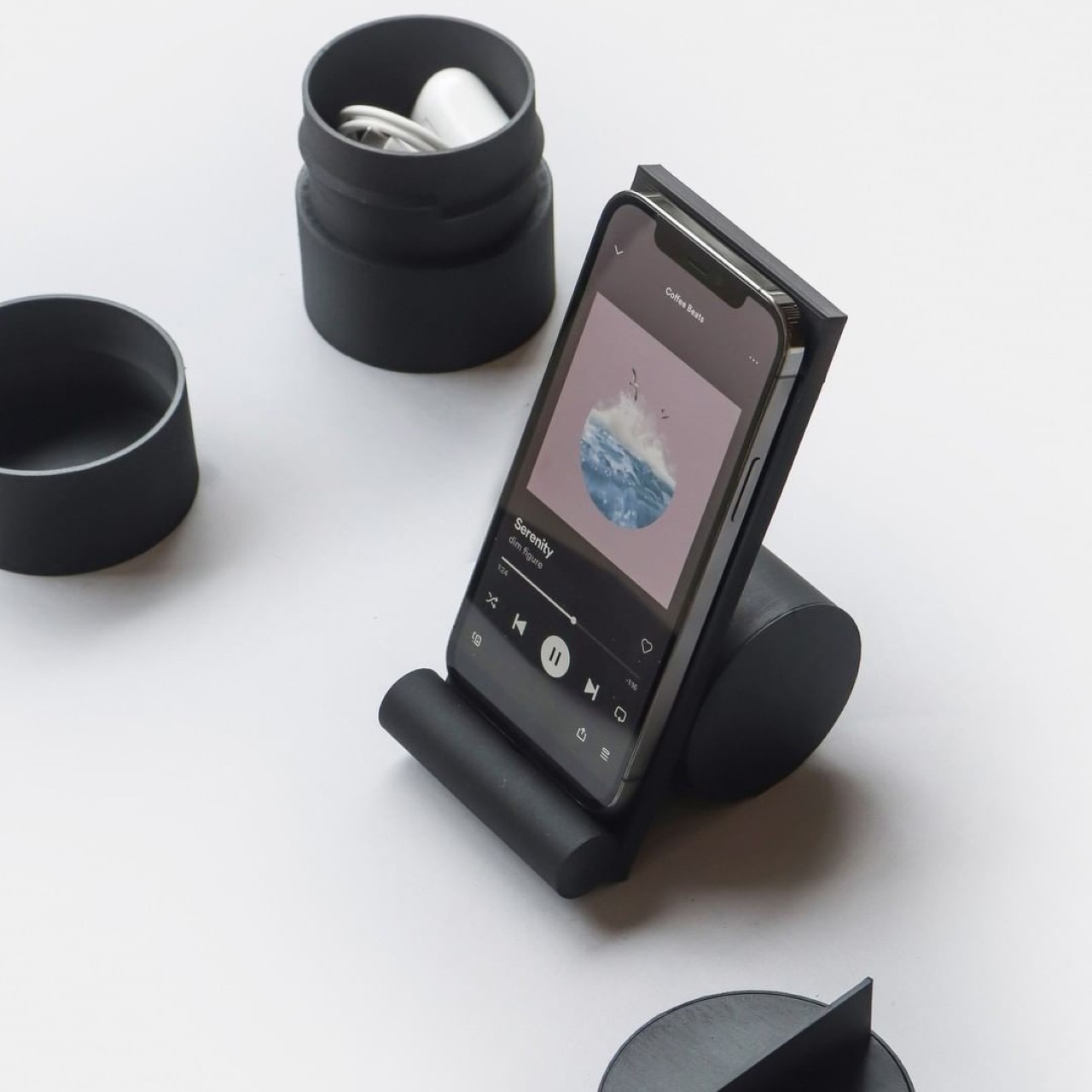
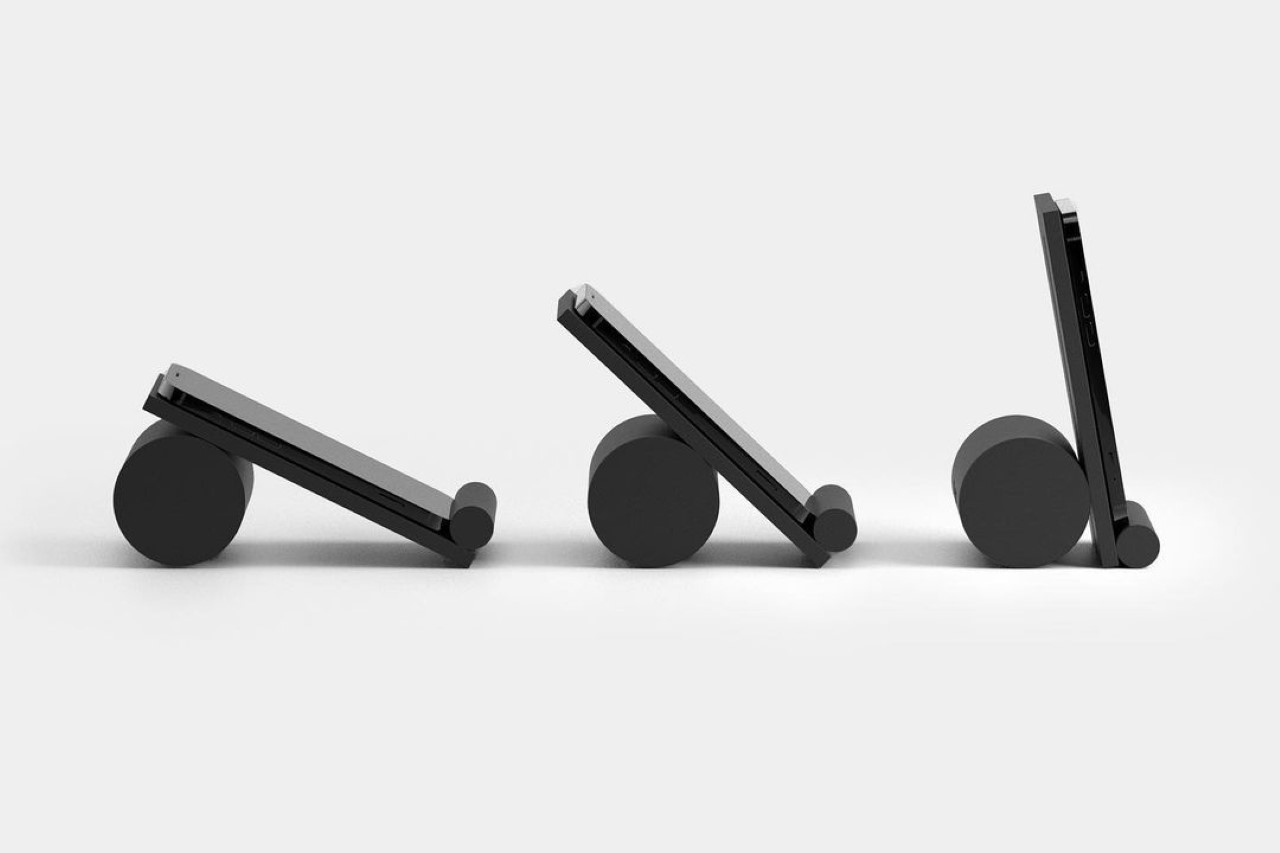
The minimalist Memphis phone dock (which looks like a percentage % sign, btw) lets you set your phone at a wide range of angles, thanks to the sliding rear cylinder. The rear cylinder sits on a simple rail and notch system, allowing it to slide up and down in a step-less manner. A friction fit ensures your cylinder stays at the angle it’s been set at, so your phone’s weight doesn’t throw it off-kilter.
If you want your own Hold Your Phone, even though it isn’t available traditionally, you can buy the 3D file for € 8.90 ($9.35) and print as many of your phone stands as you want! Feel like taking things further? How about editing the 3D file and integrating a wireless charger into the stand too?!
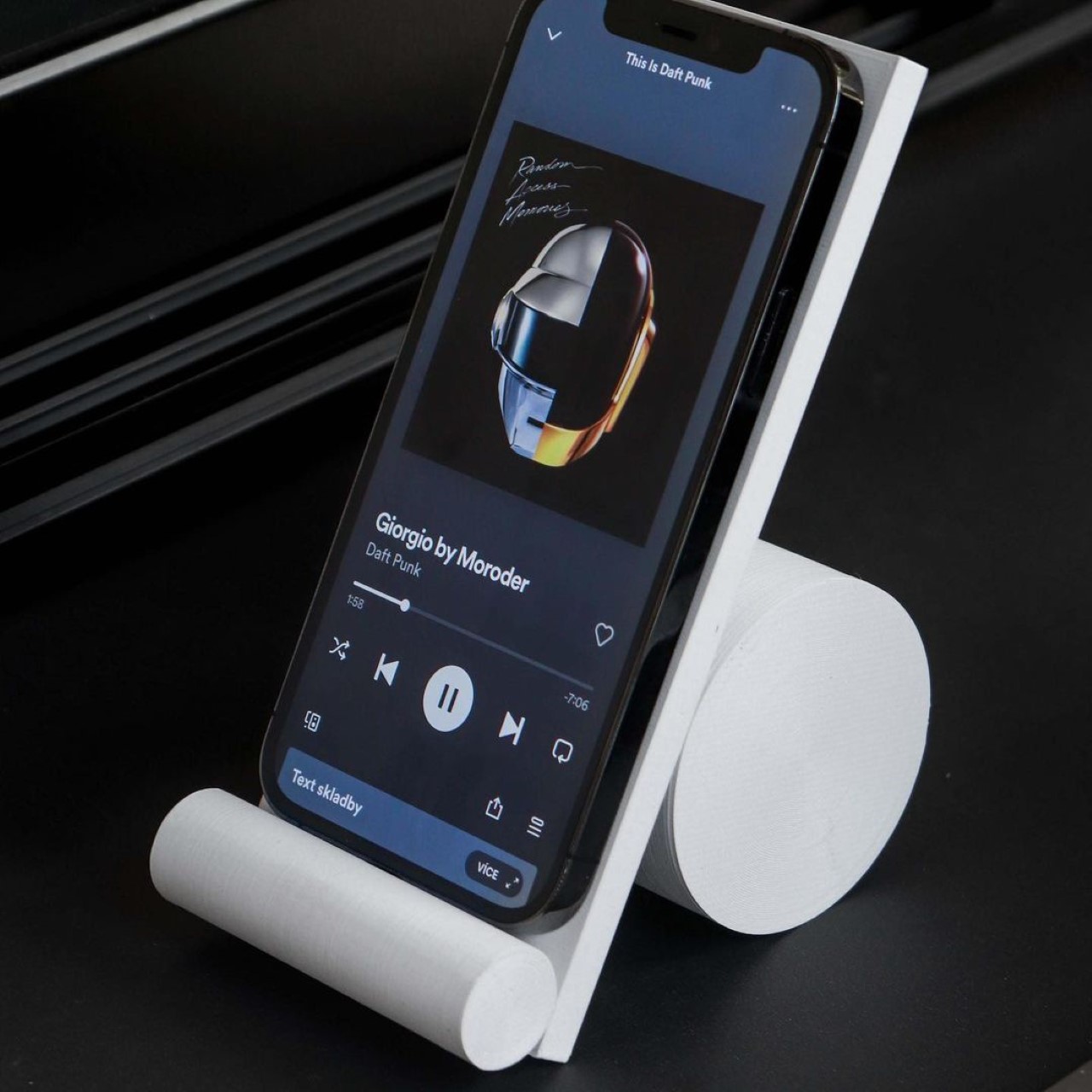
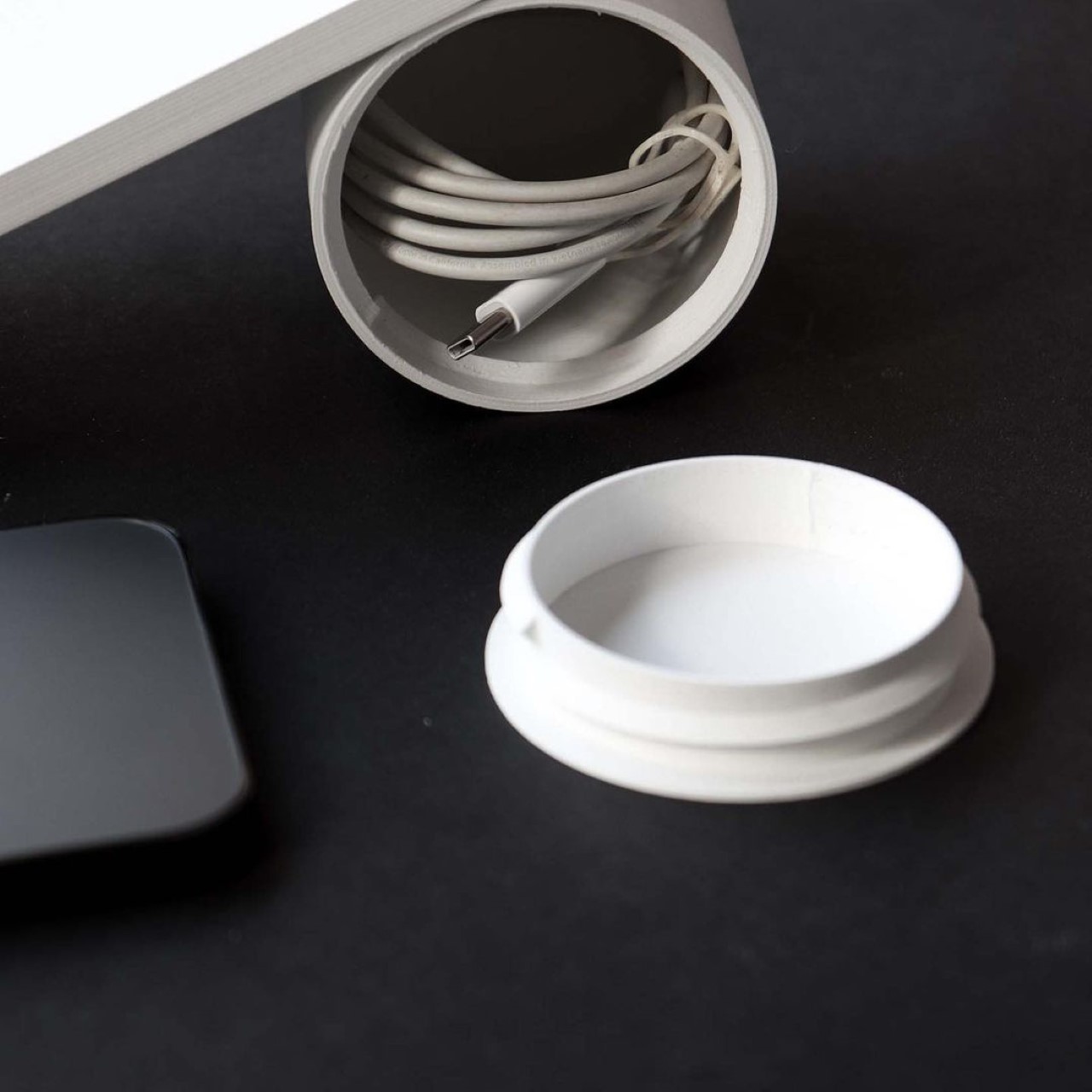
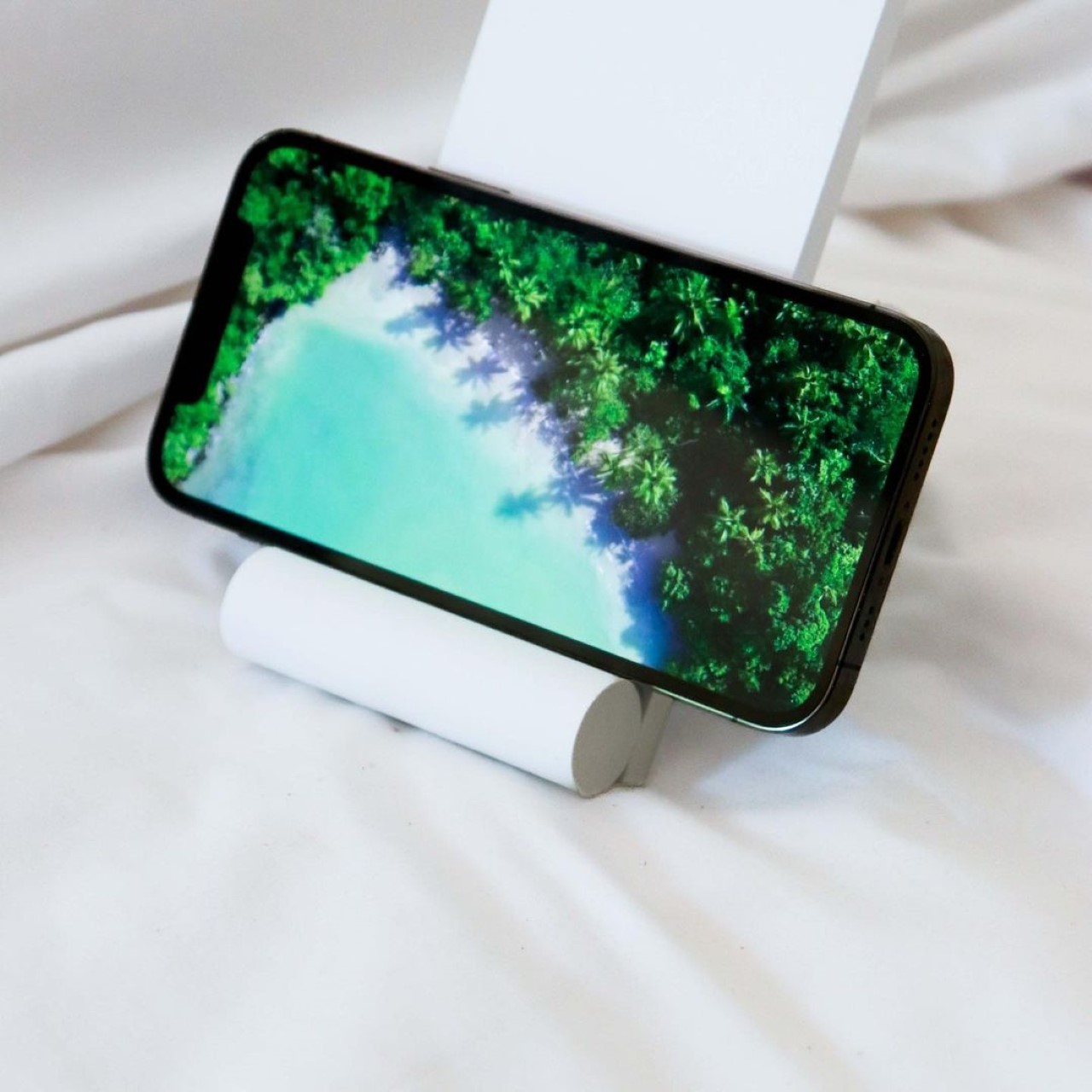
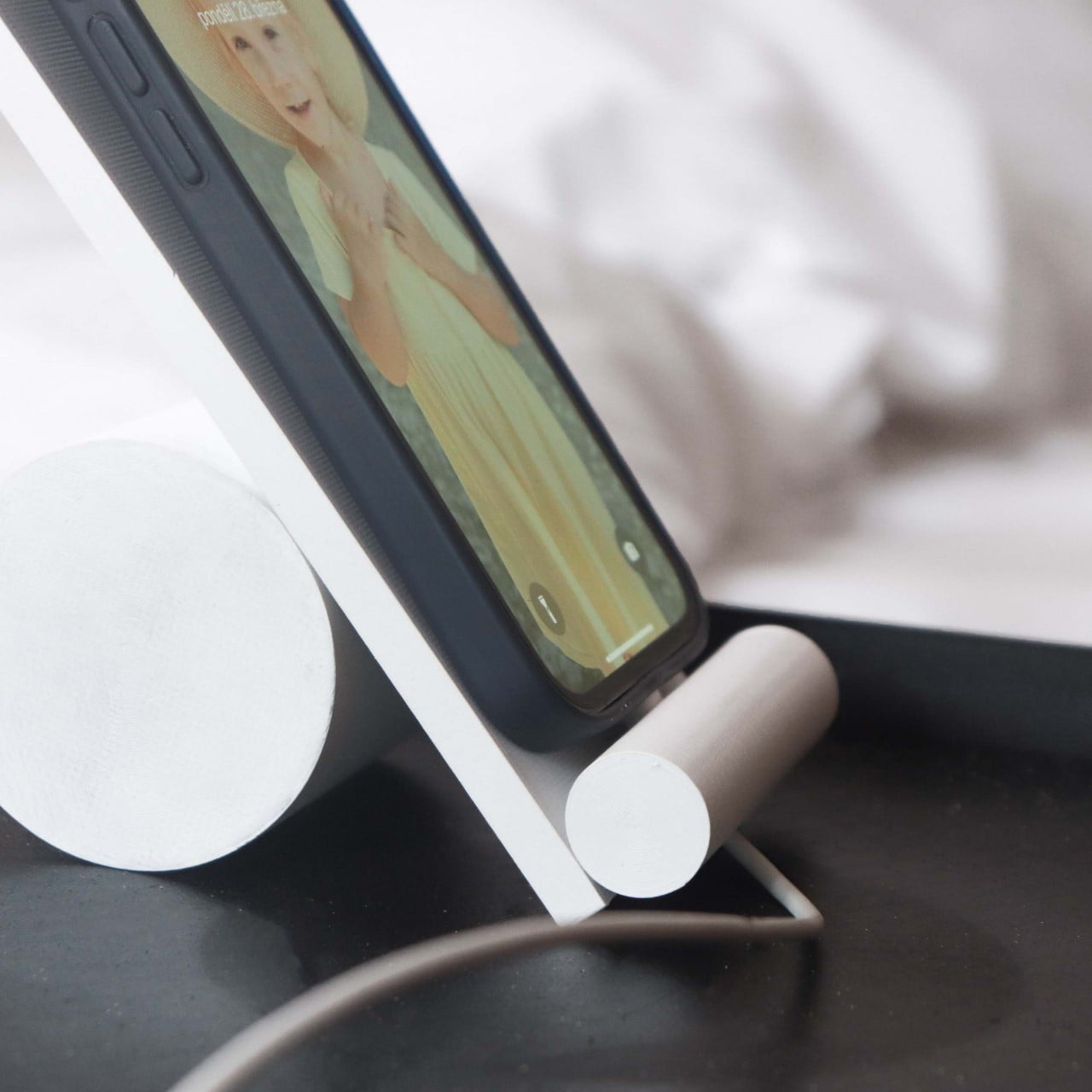
The post This adjustable phone stand’s Memphis-inspired design even has space for storing a charging cable first appeared on Yanko Design.